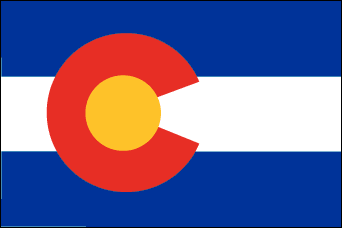DENVER — When is a convenience store not a convenience store?
For years Smoker Friendly has considered itself a convenience store, but after coronavirus hit, the State of Colorado said, Oh, no. It's a tobacconist.
The difference is important because convenience stores could stay open and continue selling tobacco products because they also sell products termed "essential" by the state — fuel and food. But Smoker Friendly had to shut its doors at most outlets until an all-clear.
Smoker Friendly is a three-generation chain with 57 stores in the state, employing more than 300 people.

The chain did get an exemption for the 22 stores that are incorporated as Gasamats, but when it tried to get an exemption for the others — arguing all its stores have some food and drinks— it was rejected. The public health order has a clause that states the business must "primarily" be engaged in selling essential stock.
A Fort Collins smoke shop, One Love, remained open in defiance of an order to close as a non-essential business. The government took it to court and obtained a temporary restraining order. The owner still refused to close and was arrested.
Vape shop owners were upset too because convenience stores could still sell cigarettes that they consider more dangerous than their products. And marijuana shops also had the freedom to operate, albeit on a drive-up basis.
Summit County laid down stringent rules on retailers in the wake of the virus, promising fines up to $5,000 and or jail terms up to eighteen months for violators. Stores were ordered to separate essential from non-essential goods and sell only the essential items. This resulted in stores like Target roping off whole sections of the premises, but convenience stores seemed to be selling everything.
"We don't really have non-essential goods," said the manager of a Loaf 'N' Jug in Frisco, although they do sell cigarettes. She said safety measures like masks, glass partitions separating the cashier from the customer, and arrows on the floor to encourage social distancing are in effect.
Grand Junction required customers to wear masks, but an unfortunate robber's ski mask didn't cover his mouth as required so the crook was cited for that along with felony robbery charges when he was apprehended.
Some Colorado cities had passed ordinances either banning or levying fees on plastic and paper before the virus arrived. Governor Jared Polis switched positions on that as the virus spread, asking for a moratorium over fears cloth bags could be more contagious.
Steamboat Springs responded by keeping a ban on plastic but removed temporarily the fee on paper, while still encouraging cloth usage. The city had been collecting $8,000 per month in fees.
COLORADO SPRINGS — Most businesses allowed to open with restrictions last month took to pursuing every dollar to make up for the many they lost. But not Jim Spinato's Water Works.
Straight off a month-long hiatus, Spinato gave weekend free washes to all those he considered essential workers. That was a lot of people — "not only the healthcare workers, but it's the truckers, the electricians, the military, the police, the Grub Hub and other delivery people, and the fast food people, everybody that has kept the rest of us going," he said. "We just wanted to give a little something back."
It was more than "a little something." He normally would have charged up to fourteen dollars for a wash.
"It was a lot of money, but we've been here forty years and we can handle it."
He offered the free washes at all three of his locations.
DENVER — The State of Colorado has come out with new rules on which employees are considered managers and do not need to be paid overtime.
The rules, which took effect in March, say an employee must earn $35,568, up from $23,660, to be put on salary status. That minimum will gradually increase until it reaches $55,000 in 2024.
DENVER — Choice Market, already a cutting-edge operation, is gearing up for another technology advance.
When its third convenience store opens this year (timing depends on the coronavirus), Choice will launch a platform that updates its mobile app and e-commerce website to allow customers to order not only prepared foods, but the chain's entire product base for delivery. Using its own fleet of electric vehicles, it promises same-day, no-contact pickup and delivery.
For those who prefer to shop in-store Choice will have charging stations for electric vehicles, a bike share program and revamped kiosks.
When the fourth store goes into operation later this year it will have artificial intelligence technology to track products as customers select them.
Recently Choice took on FloWater as a partner so it could install advanced purification refill stations. Those stations will transform tap water so customers can refill their re-useable water bottles. At some point Choice will offer recyclable, re-usable aluminum bottles for sale at a modest price.
Choice opened its first store in 2017, promising a completely different convenience store experience, including restaurant-quality food, full kitchen organic produce, and bread baked locally, with everything on the menu priced at $50 or less.
Among the most popular items is a breakfast salad bowl, which customers say is a full meal in itself.
Owner Mike Fogarty said he aims to go "full-digital," offering customers the same experience whether they shop in-store or on-line.
Originally published in the June 2020 issue of the O&A
Marketing News.
Copyright 2020 by KAL Publications Inc.
Serving the 13 Western States, the World's Largest Gasoline, Oil, Fuel, TBA and Automotive Service Market